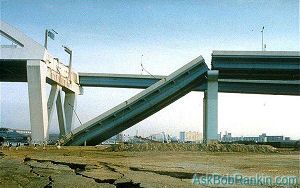Kimbweka
JF-Expert Member
- Jul 16, 2009
- 8,597
- 1,683
The Internet is robust. It's not dependent upon a single machine or cable. It's a network made up of other computer networks. It spans the globe. Connections cross over continents, under oceans and through space via satellites. And as the Internet has grown, so has our dependence upon it.
Connections across the Internet are flexible. When you use your computer to contact another machine on the Internet, the data could cross one of millions of pathways. Whenever you download a file, the file comes to your machine in electronic data packets that travel across the Internet. The packets don't all take the same path -- the traffic routes are dynamic. If a particular connection is damaged or unresponsive, the data can follow a different path to reach your machine.
This makes the Internet a reliable communications resource. Even if an entire section of the Internet were to go offline in the wake of a natural disaster or a nuclear attack, other sections could remain functional. While any data stored on machines that were hit by the disaster might be lost, the Internet itself would remain.
It's almost impossible to imagine a set of circumstances that could cause the Internet to collapse. It would require destruction on such a widespread scale that the loss of the Internet would probably be the least of our worries. But what if the Internet did collapse? How would that affect us? Would life change drastically or would we quickly adjust, relying on older means of communication?
Guys let us discuss this!!!!!!!
Connections across the Internet are flexible. When you use your computer to contact another machine on the Internet, the data could cross one of millions of pathways. Whenever you download a file, the file comes to your machine in electronic data packets that travel across the Internet. The packets don't all take the same path -- the traffic routes are dynamic. If a particular connection is damaged or unresponsive, the data can follow a different path to reach your machine.
This makes the Internet a reliable communications resource. Even if an entire section of the Internet were to go offline in the wake of a natural disaster or a nuclear attack, other sections could remain functional. While any data stored on machines that were hit by the disaster might be lost, the Internet itself would remain.
It's almost impossible to imagine a set of circumstances that could cause the Internet to collapse. It would require destruction on such a widespread scale that the loss of the Internet would probably be the least of our worries. But what if the Internet did collapse? How would that affect us? Would life change drastically or would we quickly adjust, relying on older means of communication?
Guys let us discuss this!!!!!!!
